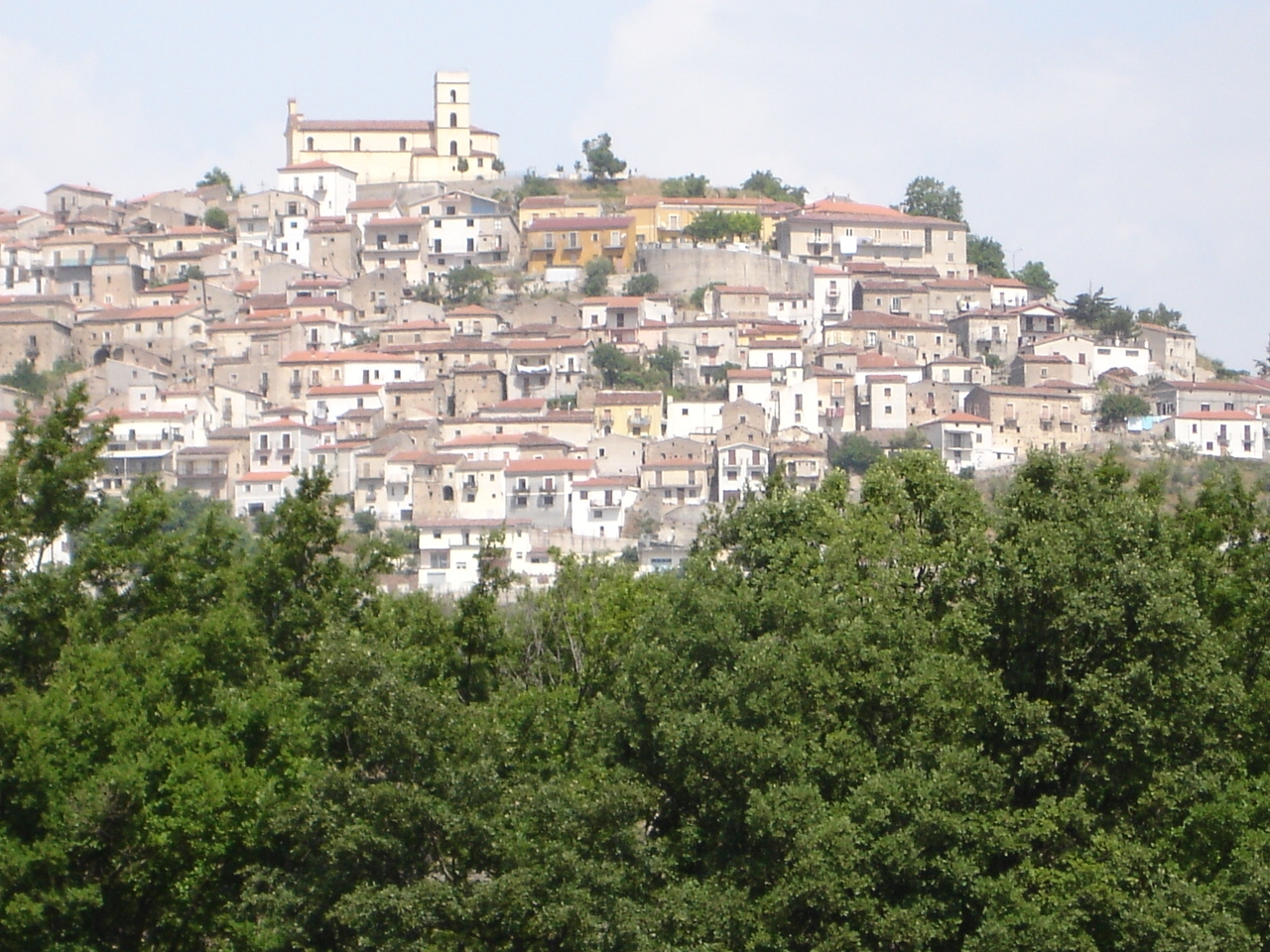The transition from normality to something ancient and isolated happens suddenly.
One moment you’re scooting down the autostrada in your brand new rental car, a part of society and life as you’ve come to know it.
And the next, you’re in the midst of the world as it used to be, a place lined with cobblestone streets and ancient traditions and proud locals who stare you down for the foreigner you are.
It’s here, in this curious patchwork of old and new, that you’ll find the tiny village of Grumento Nova, perched precariously on a mountaintop.
The old stone buildings are carved into the slopes and look out onto the valley below like they have for thousands of years, since locals sought refuge from Hannibal and his elephants, taking to the safety of height.
It’s the sort of place that nobody goes, unless you’re from there.
Too far from the coast for northerners, not quite polished enough for tourists looking for their Under the Tuscan Sun moment.
Even the locals are shipping out.
There were 10,000 residents in decades gone by; today there are less than 1000.
The youth are looking to the universities and jobs and social lives of the cities and they’re not coming back.
It’s been the trend for generations, since the war and the great Italian migration.
My mother Milu’ was one of them, one of the lucky and unlucky who left for Australia.
Her story, and therefore my own, is tied to the fabric of Grumento Nova in complex, tragic and beautiful ways.
“Why on earth would you go there?”, my mother asked, when I told her I was heading over for a visit at 24 years old.
She hadn’t been back once.
She hated the idea, even if she could somehow have brought herself to deal with the long plane ride over, which she couldn’t.
For her, the town symbolised poverty, struggle, bad memories, and guilt for leaving it all behind without a second look in the mirror.
There was more to it than the ordinary tale of immigration.
My father had died of a heart attack at 37, not long after they’d started their new life in Australia, and my mother wore the blame for this from his family.
It sounds horrific to say out loud, that she would be blamed for something as innocent and tragic as a heart attack.
But for this small town, stranded somewhere in history, those who’d left were to be vilified.
Only those who died were pardoned, and their survivors absorbed that guilt.
But even knowing all of this, there was something that pulled me over there.
My mum had said her goodbye and as difficult as that had been for her, their story had come to an end.
Mine had started there, born on the kitchen table of my grandfather’s house, but I’d never been able to say goodbye or understand what it meant to be from Grumento.
So off I went.
And again, and again.
It’s a pilgrimage I’ve made almost every year since.
By myself, with my husband, with our two boys, with friends and relatives and colleagues.
It’s become our home away from home, a place with an emotional connection deeper than just a favourite destination or even a holiday house.
I came to Australia too young to be burdened by the negatives.
I’m able to see the beauty in this place.
Because, make no mistake, there is a lot of beauty there.
In the way the local women trade gossip and recipes over the clotheslines hanging between their windows.
In the smell of the ragù simmering all morning and hanging thick in the air, or the sound of the church bells ringing and the chatter of decades of lifetimes of friendship on every corner and the way young children rule the town, like young kings and queens of the piazze.
The minute hand just runs a little slower, with a little more poetry and meaning.
At least it does for visitors.
I couldn’t imagine living there.
But that’s the beauty of our annual pilgrimages there: we get to enjoy the best on our own terms.
When some or all of us pack our bags and tell mum that we’re off to Grumento for a trip she doesn’t argue anymore.
She shrugs and arches her eyebrows like she thinks we’re crazy, but she’s glad to see us heading off on a holiday.
That we’re headed to Grumento Nova rather than some other destination does not seem to trouble her.
I like to think it’s a sign she’s earned some relief from her past.
Certainly, her past has been a gift to our family.
The people and the place have enriched our lives in ways that are difficult to explain.
The best stories have both the good and the bad, if only to better understand the good.
The house and town of my grandfather has some bad, but the good gets better with each return visit.
With thanks to Robert O’Reilly and Patrick O’Reilly for their valued contributions.
Norton Street Italian Festa will take place on Sunday, October 28, in celebration of all things Italian.
Visit the Norton Street Italian Festa's website for more details.












